I love books that keep you guessing. Just when you think you know the answer—clack!—the trapdoor opens, you fall another level deeper and realize you didn’t even know what the question was.
But the best puzzle box books aren’t just the ones that surprise you. They’re the ones where the answer was dangling in front of you the whole time, like the magician who buries the reveal in the box hanging over your head, if only you could see through its gearworks to the truth inside.
It’s not just enough to fool your audience—the magician’s promise is forewarning: I’m going to fool you. I’m telling you that right now. When I say look over here, it’s a lie. Of course, if you look over there instead, that could be the lie too. It’s getting really hard to tell.
Science fiction, fantasy, thriller, horror—the genre is irrelevant. It’s the paint on the house that has no doors and every window looks outward, projecting the past or the future but never the present (like that lovely “slow glass” in Bob Shaw’s heartbreaking Light of Other Days).
So what are my favorite puzzle box books, the ones that really threw me for a loop, bent my brain, stretched my perception? Let me cheat a little, and tell you in advance: This is not just a list of puzzle box books. I’m going to start there, with those traditional mind-twisters that keep you guessing, reversing, inverting. But then I’m going off a cliff. Into novels that have nothing to do with puzzles, riddles, clues, cabals.
But somehow, they were mysteries to me. They solved problems I didn’t know I had. They began as one thing, lied, and revealed themselves as another. And something in the untouchability of their truths—their noumenon—knocked me off my feet. Because what greater mystery is there—beyond who dun it? beyond where is it?—than: Who are we? And why?
Spoiler alert: This is a piece about spoilers. The surprises, the twists, the dupes. How can you talk about twists without revealing there’s a twist? And these are good ones. Then again, I could be lying.
The Magus by John Fowles
My original teen crush. What better to capture the imagination of a self-absorbed bookish high school grad than a book about a self-absorbed bookish college grad who—floundering in life—finds himself teaching English on a mysterious Greek island where things seem just as supernatural and exciting as he deserves them to be. Before the 1980s birth of the God Game computer genre (…and Populous begat Dungeon Keeper begat Sims begat Spore…) the enigmatic recluse Maurice Conchis (conscious, get it?) was playing his godgames on the isle of Phraxos, putting young Nicolas Urfe through his moral education toward… what exactly? When I re-read The Magus years later, I couldn’t quite tap back into the adolescent bittersweet or moral illumination I once thought I found—like youth, this novel about youth was harder to break back into than Conchis’s trick-filled mansion. Then again, maybe that’s the point: Miss Havisham is referenced at one point, and like the ghosts (real or fake) parading through Conchis’s woods, her clocks stopped spinning a long time ago.
Buy the Book
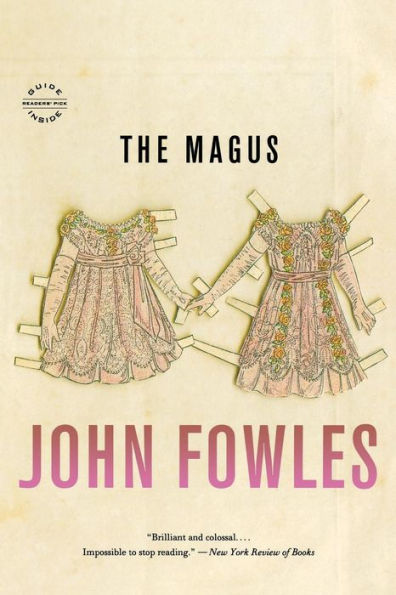

The Magus
Slade House by David Mitchell
Pretty much any of Mitchell’s books, or for that matter his computer-animated 3D opera, could qualify for this list, but there’s something in the brisk economy of Slade House that makes it all the more mind-bending. Stories across time become stories through time. What keeps pulling strangers back to that house behind the walls? Mentions of conjurer’s slang (“banjax,” the “Shaded Way”) mix with wry quantum physics, because really, at the end of the day, what’s the difference? (I’m told math supports one and not the other, an argument against taking things on faith that I have to take on faith). Some say Slade House is Mitchell-lite, or that its references can’t be fully understood without knowing his larger, deeper works. For me, the opposite is true. The simplicity and lack of explanation in Slade House make its wonders more startling, not less—it’s easy to hide the gimmick behind obscurity. Like a magician with sleeves rolled up, Slade House has nothing to hide. By the time you know what this spiderweb book is really about, like for the characters themselves, it’s simply too late.
Buy the Book
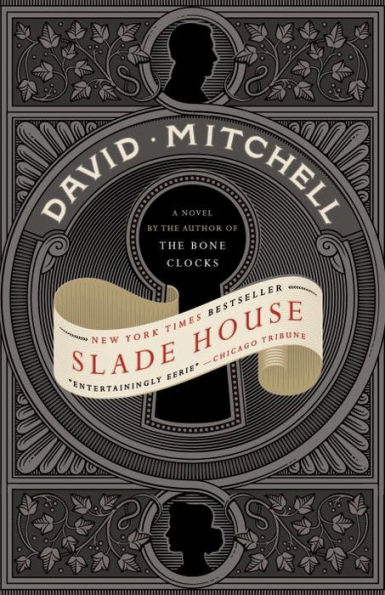

Slade House
The Seventh Function of Language by Laurent Binet
A recent addition to the puzzle-box canon, Binet’s wonderfully strange work takes master puzzlist Umberto Eco and makes him a fictional character alongside Michel Foucault and Camille Paglia, serving an underground debating society with gruesome stakes. At issue is a secret about language itself—so vital the book reimagines the real-life death of literary critic Roland Barthes as murder over it. (Why else would that laundry van have mowed him down in Paris, if not for the slip of paper he was secreting?) In real life, Umberto Eco teased that Dan Brown was one of his characters, peddling Templar conspiracy theories without irony. And Binet seems to answer, You want irony, Mr. Eco, come be one of my characters. But the real surprise here is that language is spellwork—and without any expository tricks. Damned if Binet’s lines of seduction and persuasion don’t work their charm on the reader too. He seems to be saying, Yes, words can control you. I just proved it. Now how is that not magic?
Buy the Book
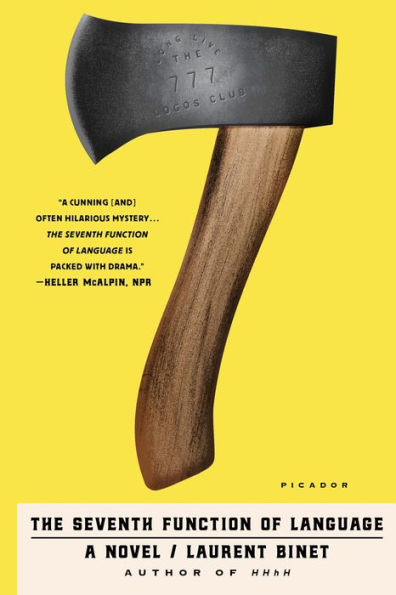

The Seventh Function of Language
Foucault’s Pendulum by Umberto Eco
Which leads to the real Mr. Eco, who floors me with a massive tome about conspiracies whose central point is that there are no conspiracies, or at least none worth dying for. Three Italian book editors mash up classic conspiracy tales randomly, only to find that their joke is taken very seriously by the fanatic fringe. Sure, on occasion a character whips up a homunculus in the background, but these corner-of-the-eye distractions are just that—Umberto the magician is using sorcery as misdirection to hide the banal. Hailed a post-modern classic, it’s really a deeply felt attack on post-modernism. There is a right order to things, he is saying—the shuffling of myths and letters is no less sacrilegious than the shuffling of DNA that leaves one of the editors stricken. All that, he seems to say, to learn the box was empty all along. But the ending is one of hope, not despair—the last line, which won’t be spoiled here, is the simplest writing in the book. It’s a lament, a recognition of what really matters, coming, as it usually does, a little late.
Buy the Book
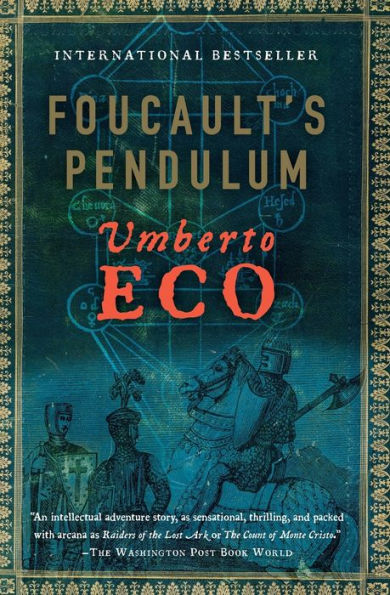

Foucault’s Pendulum
Dark Matter by Blake Crouch
Many books ask: Who am I? And many of those have layered that existential crisis with robotic doppelgängers, genetic clones, quantum cousins, evil twins. But how many novels have juggled the sheer multiplicity of selves in Crouch’s quantum puzzle box? Strangely, it’s an optimistic voyage. There is a self among the selves—fate and quantum chaos can exist side by side—at least for the narrator. Maybe, in another universe, Mr. Crouch is writing a trillion sequels for the other less fortunate I’s. But then again, who isn’t the hero of their own novel?
Buy the Book
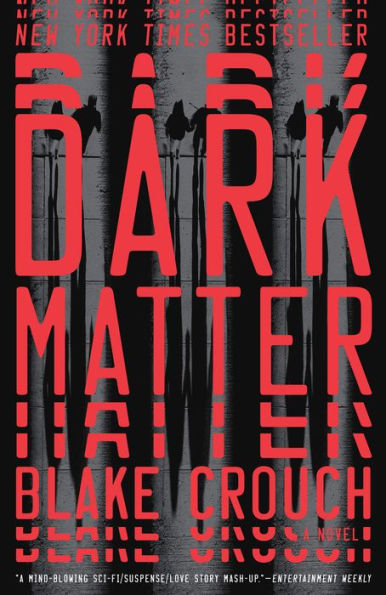

Dark Matter
Night Film by Marisha Pessl
At one point, the hero of Night Film, a disgraced journalist, is literally climbing up (down? through?) a giant puzzle-box. It doesn’t go particularly well, inside or out of his brain. But that’s the way the puzzle-master wants it, here Stanislaw Cordova, recluse director of cult films that drive people mad on screening, a lovely amalgam of Stanley Kubrick, Orson Wells, Marlon Brando, David Lynch, David Cronenberg, and perhaps anyone else whose films blinker reality, or who hole up, or whose fans make an art of obsession and reinterpretation. Here, the big reveal is in what isn’t revealed: it’s all windup, no pitch. An anti-Wizard of Oz, the action stops just as the curtain is pulled back. Which leaves an instant of uncollapsed hope: this mysterious director is worth meeting! Revelation has come! What will he say? Our protagonist might just find out—but we won’t. Like every good secret society, admission is the blessing, membership is the curse. It’s the magician’s peculiar pain: everyone knows the trick is fake, but he’s the only who knows for sure how, and that’s worse. Why not pause in the instant before revelation, Ms. Pessl seems to say? It makes for a striking final image.
Buy the Book
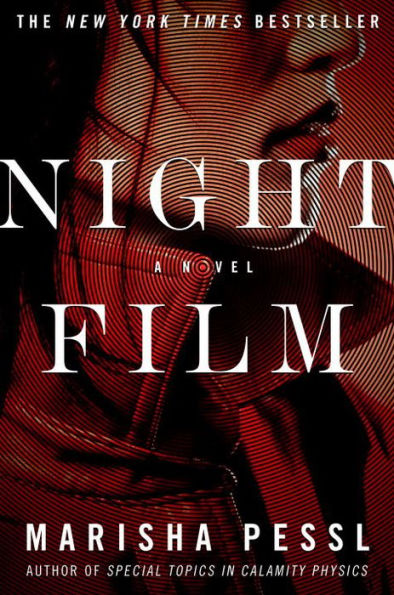

Night Film
The Road by Cormac McCarthy
Okay, I promised it was coming—the cheat, the fudge, the big lie. The Road is not a puzzle box book. It has no place on this list. It’s a terrifying dystopic journey, a post-apocalyptic trek of father and son, seemingly the last two good people in a world of char, ash, and soot in various forms, with the occasional colloquy of the boy assuring himself through his father that they had to do the things they had to do. So why is it here? Because it contains, locked away within its non-puzzle box puzzle box, the answer to the greatest mystery of all, the one we don’t even dare ask as we sip mocha-frappa-grandeccinos and pretend the world isn’t a house of cards on stilts: Why exist? And the key is hidden in the final pages, mainly in the last line even, where you can barely stand to arrive, the book having pummeled you so hard in the 286 pages before. Every page of the book—every pothole of despair, every stray cannibal—makes you think, why go on (in life, not the book)? It is nothing short of magic that McCarthy can dissolve that well-earned despair, slice that Gordian knot of rational non-existence (personified by the lost mother in the book)—with so little a thing as this ending and its sly, inadequate glimmer. Yet, no book has touched me more deeply in the final pages, literally left me stunned and welling with tears, than this. This book is an existential puzzle—the existential puzzle—and it tapes a key to its last page to nothing less than our own ridiculously, tragically, miraculously buoyant souls.
Buy the Book


The Road
Breakfast of Champions by Kurt Vonnegut
And now this: a book that does not contain a puzzle, because it is the puzzle. Where do the pages stop and where does reality begin? Here the author appears as a character, while the characters fall off the page. A book of unreality and layers: Dwayne Hoover is losing his mind. Kilgore Trout, a middling science fiction writer, gives him a novel that Hoover mistakenly takes as gospel—that he is the only being on earth with free will, and everyone else is a robot. That has disastrous consequences. Then Kurt Vonnegut appears in the book and tells Trout that Vonnegut is the Creator of his universe—true—and grants him free will. Books inside books inside books. What book are you in? And yet if Trout is the child and Vonnegut God, then why, in the last line, does Trout call out in Vonnegut’s father’s voice? Like an M.C. Escher painting, the puzzle ends where it started, having never changed direction. And it ends with the deepest plea of all, as the fictional character—in the real father’s voice—begs for an answer to the riddle of time. What does even a fictional character fear, as the end of his book is only letters away? “Here was what Kilgore Trout called out to me in my father’s voice: ‘Make me young, make me young, make me young.’”
Buy the Book
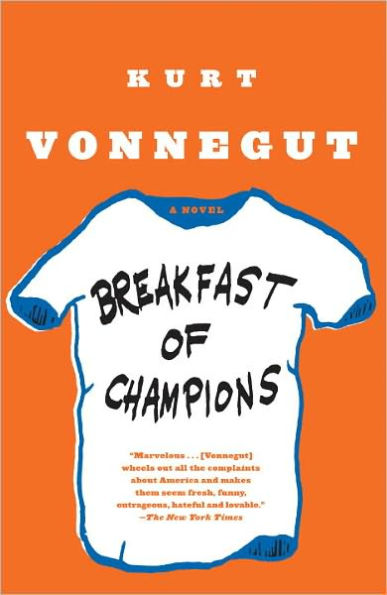

Breakfast of Champions
Danny Tobey is a fifth-generation Texan. He went to Harvard College, Yale Law School, and UT Southwestern medical school. Harvard gave Danny the Edward Eager prize “for the best creative writing.” He wrote and edited the Harvard Lampoon and was anthologized in The Best of the Harvard Lampoon: 140 Years of American Humor. Danny’s first novel, the sci-fi fantasy thriller The Faculty Club, came out from Simon & Schuster. Danny is a noted expert on Artificial Intelligence. In 2019, the Library of Congress gave Danny the Burton Award for his work on AI and the law. Danny’s most recent novel, The God Game, is on sale now.










